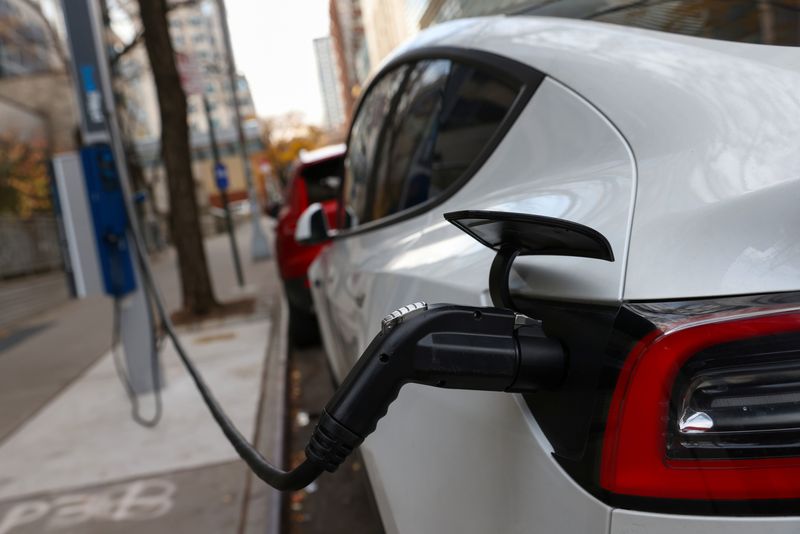By David Shepardson
WASHINGTON (Reuters) -U.S. government agencies are targeting buying 9,500 electric vehicles in the 2023 budget year, but face supply issues and higher costs, a federal report said on Wednesday.
That’s almost three times the number acquired in the prior budget year.
The Government Accountability Office said 26 agencies with approved EV acquisition plans estimated they would need over $470 million for vehicle purchases and almost $300 million in estimated costs to design and install the necessary infrastructure and for other expenses. The vehicles purchase would cost almost $200 million more than the lowest-priced comparable gasoline-powered vehicles. The agencies represent more than 99% of the federal vehicle fleet excluding the U.S. Postal Service (USPS), which is an independent federal entity.
The White House did not immediately comment.
Agencies face hurdles to buy as many EVs as they would like or are unsure if EVs will meet all needs. The Transportation Department told GAO it initially wanted to order 430 ZEVs for 2022 but their order was scaled back to 292 due, in part, to order cancellations from manufacturers.
Customs and Border Protection (CBP) officials told GAO they do not believe that EVs “can support law enforcement equipment or perform law enforcement missions in extreme environments, such as those on the borders,” the report said.
President Joe Biden in December 2021 issued an executive order directing the government to end purchases of gas-powered vehicles by 2035. Biden’s order also directs that 100% of light-duty federal acquisitions by 2027 be electric or plug-in hybrid vehicles (PHEV).
Biden’s order covers 380,000 federal vehicles and covered agencies purchases about 45,000 annually. It does not apply to USPS.
Federal agencies quintupled purchases of EVs and PHEVs in the 12-months ending Sept. 30, 2022 moving from 1% of vehicle acquisitions in 2021 to 12% of light-duty purchases in 2022, or 3,567 total.
In May, USPS said it expected to receive next-generation delivery vehicles in June 2024, nine months behind schedule.
(Reporting by David Shepardson; Editing by Leslie Adler and Diane Craft)
